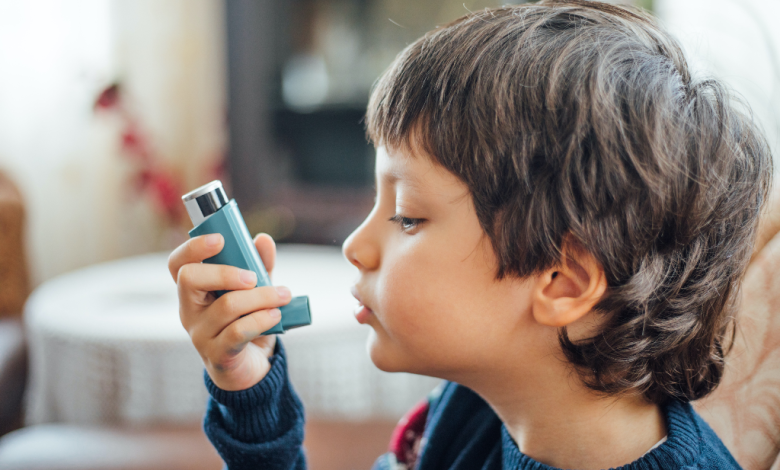Some Lesser-Known Asthma Triggers to Help Tackle Your Attack

Physical activity, cold weather, allergies, or an upper respiratory infection are common asthma triggers that you know probably. However, there are some you might never suspect which can exacerbate asthma symptoms. Do a location-specific search like the best asthma specialist near me to know more.
Unknown triggers of Asthma
Ladybugs
Allergy symptoms may correlate with seasonal ladybug infestations. Asthma symptoms could be triggered by dust that gathers as the ladybugs die and decompose.
Foods
Foods like sulfites, such as those in food and wine, dyes, monosodium glutamate (MSG), aspartame, and other additives may cause asthma attacks.
In the case of certain cheeses, mold could be the underlying culprit as a common trigger.
Laughter and crying
Strong emotions such as crying and laughter can worsen symptoms and lead to an attack.
A/C units
There are numerous indications that air conditioning triggers asthma symptoms. The Problem occurs when your child moves from an overly warm outdoor environment to an air-conditioned space.
A/C-related asthma flares could happen because of several factors. Drastic temperature drops can irritate the airways. Being in winter weather can be harmful to people with Asthma.
Window units can pose more risks from excess dust and moulds. So whether you have a portable unit or central air, make sure you’re replacing the air filters at regular intervals!
Storms
The allergies or asthma symptoms in your baby may increase whenever it rains.
Big storms tend to spread pollen instead of calming down the counts by causing them to explode by sending higher concentrations of pollen particles into the atmosphere.
During a thunderstorm, the rapid up-and-down drafts of air split pollen and populate the air. It could lead to a temporary increase in pollen levels which is extremely dangerous for people with Asthma.
Although pollen or small air particles are filtered through the nose before they enter the respiratory tracts, when it’s broken up, those microscopic particles become small enough to get into the lungs.
As reported, such weather-related phenomena got huge attention in 2016 when a massive storm system sent over 8,000 people to emergency rooms and caused eight asthma-related deaths in Australia.
Spicy foods
Many children are struggling with food-related triggers for Asthma. As a parent, you must be careful of the foods and limit or avoid them so that it does not cause any sensitivity.
To avoid your symptoms from getting worse, you must reduce the intake of soda and dairy or other spicy foods.
Spice-induced asthma flares are developed due to acid reflux. According to the asthma specialist, spicy foods cause excessive stomach acid, which in turn irritates the airways and lungs. Prolonged acid reflux may worsen your Asthma over time.
Sugar
If your baby has a sweet tooth, check the habit, as this can increase your triggers for Asthma. Consuming a bunch of sugar before a run may cause your Asthma to flare up regardless of the use of medication.
You must be a little conscious of the sugar intake now. However, the relationship between sweets and flaring of asthma symptoms may become a mystery.
Menstrual cycles
Out of your imagination, certain health issues, including Asthma, tend to get worse during the menstrual cycle when the progesterone and estrogen levels decrease.
Your girl child is often first diagnosed with Asthma around the time at the inception of puberty. But, the relationship between asthma symptoms and female sex hormones is still a bit unknown.
Controlling your asthma triggers
It is important to know what to avoid or limit to control your triggers. You must keep a list of things that are likely to make your symptoms flare. Never skimp on the details.
For the best result, record how long it takes for your Asthma to act up, how critical the flare is, and other useful information that could be useful.
You must consult with your doctor about your triggers. It can help determine when you have an underlying allergy and help you suggest strategies to manage symptom flares due to exposure to triggers.
You must try your best to limit or avoid your exposure to things that you believe are triggers. It could mean reading food labels more closely, avoiding the cleaning aisle at the store, or altering your activities based on the weather conditions.
Other Triggers
- Tobacco smoke
- Dust mites
- Outdoor air pollution
- Pests such as cockroaches and mice
- Pets
- Mould
- Pollen
- Cleaning and Disinfection
- physical exercise and stress
- bad weather events
- thunderstorms or high humidity
- some medications
- dry air
- breathing in cold
- Some types of foods
- food additives
- fragrances
- strong emotions
To check your Asthma, make sure to use your medications at the right time. Don’t forget to carry them with you at all times to prevent unexpected triggers.
Treatment of Asthma
Asthma specialist in Manchester help manage the symptoms and enable your baby to live an active or normal life. Devices like inhalers let the child breathe in the medicine. Apart from this, medicines and other modes of treatment may also be required when your Asthma is severe.
For critical Asthma, Bronchial thermoplasty is a mode of treatment. It may help open your airways. These procedures use gentle heat to shrink the smooth muscles in your lungs.
Any difficulties in the throat, nose, voice box, lungs, and airways may cause your child to cough. An asthmatic child may suffer from cough, wheeze, tight chest, or breathlessness in most cases.




